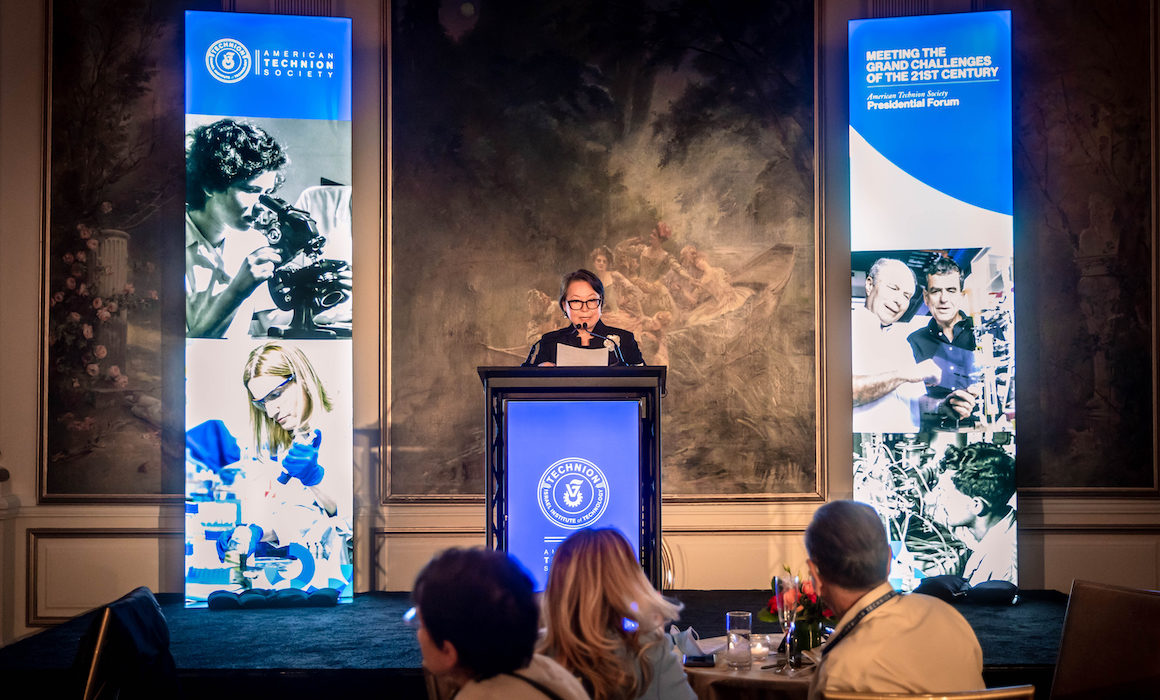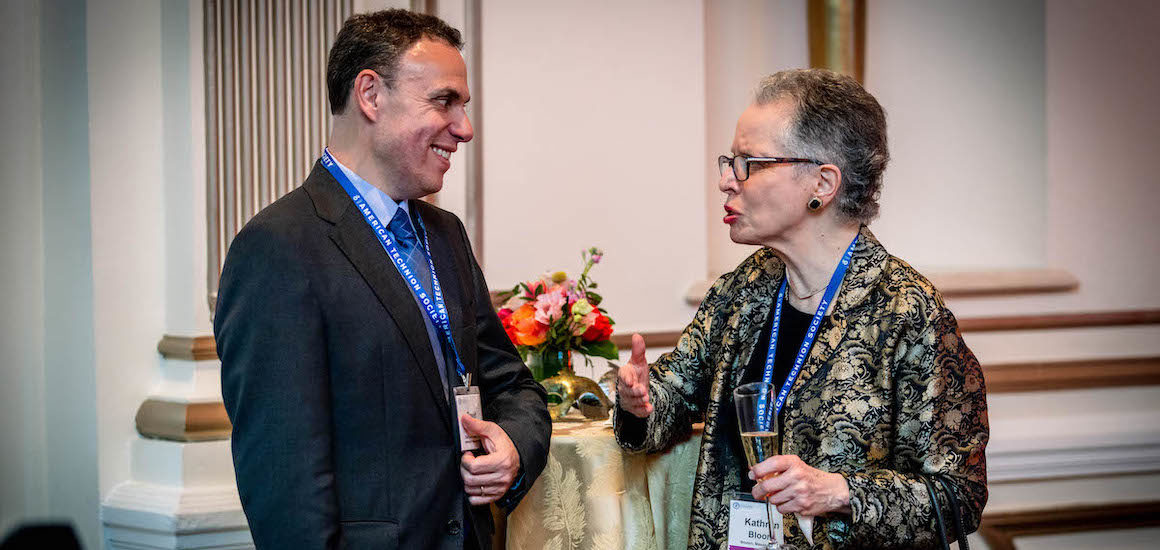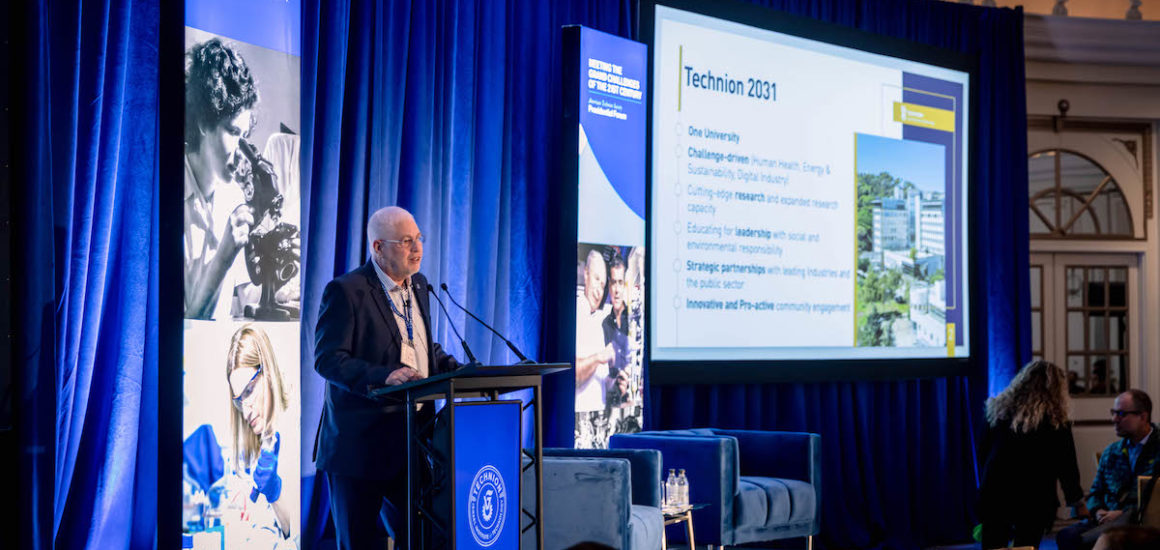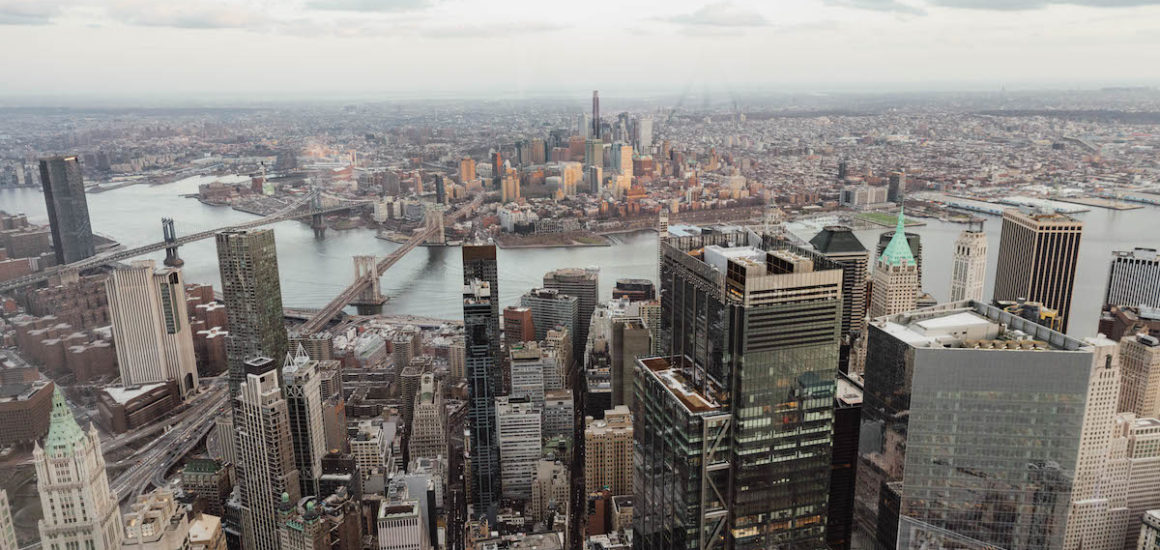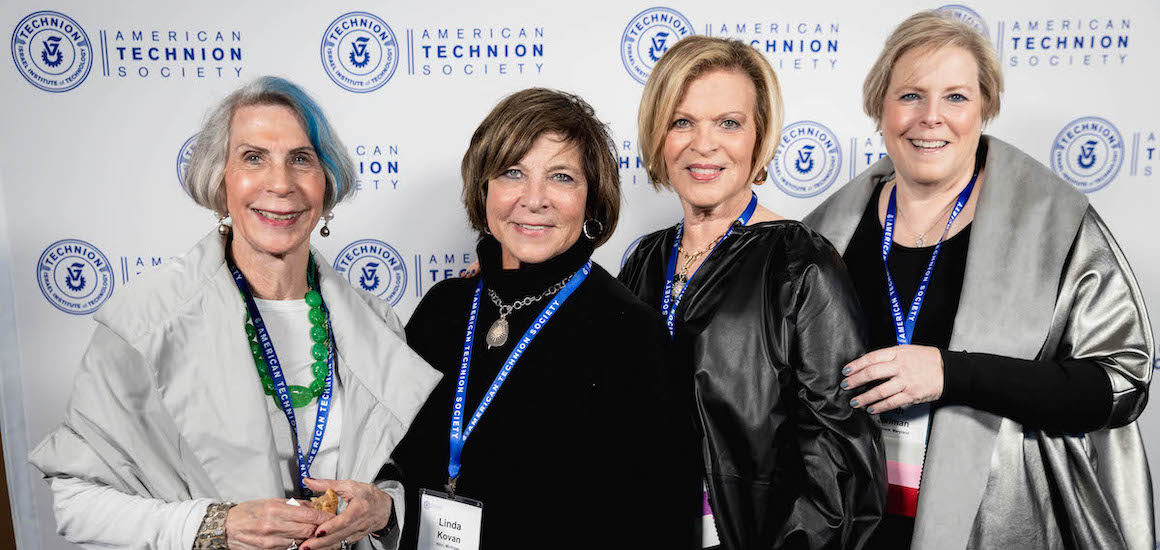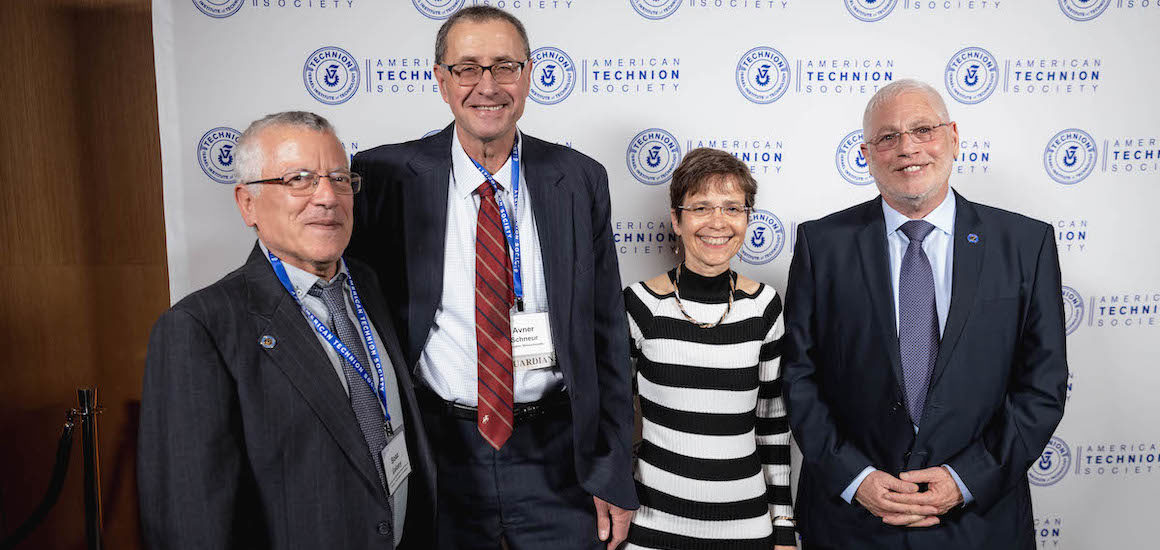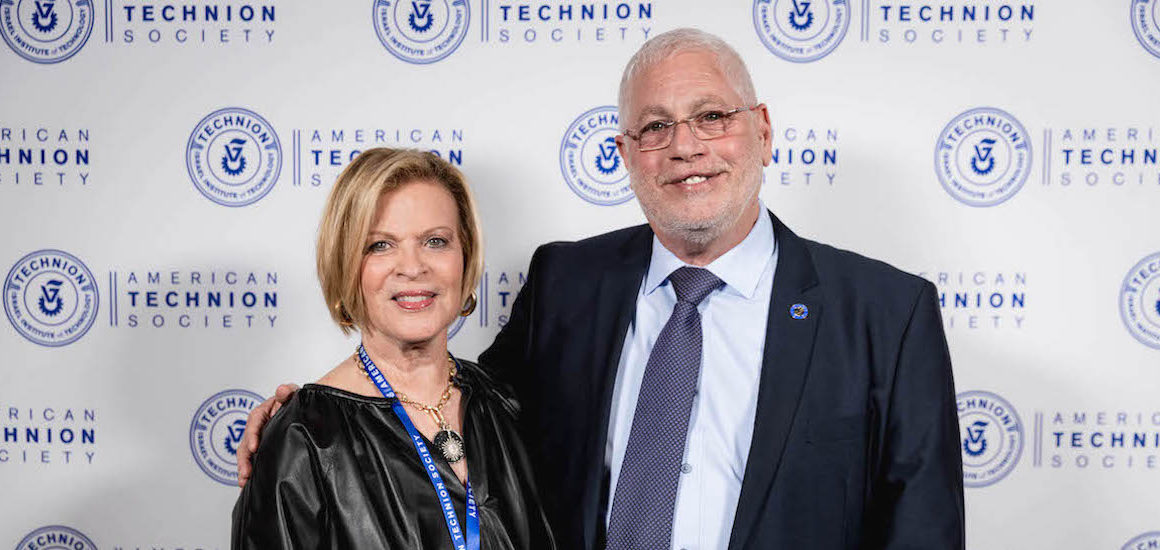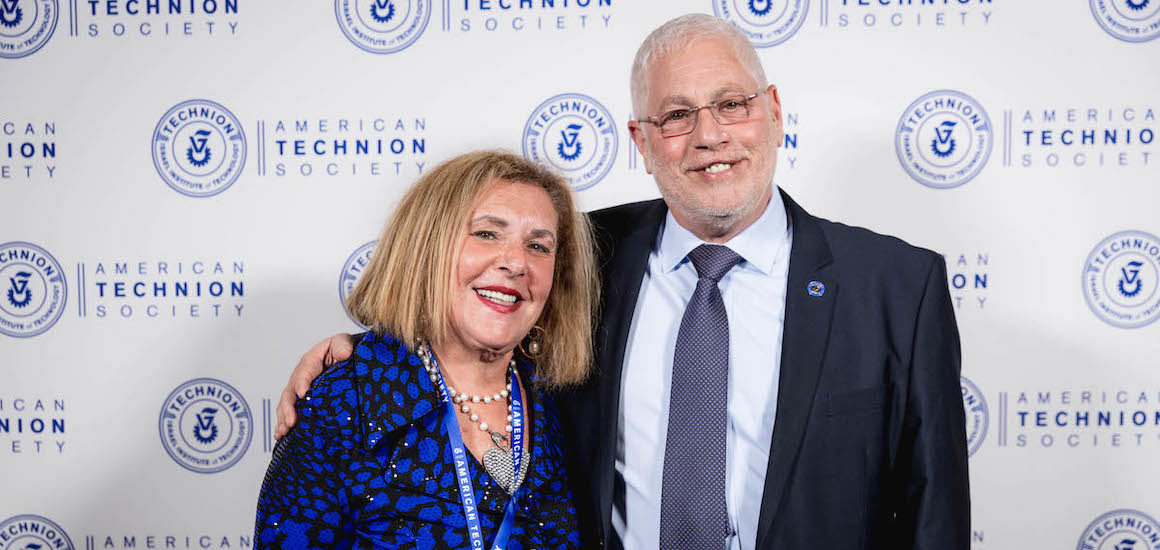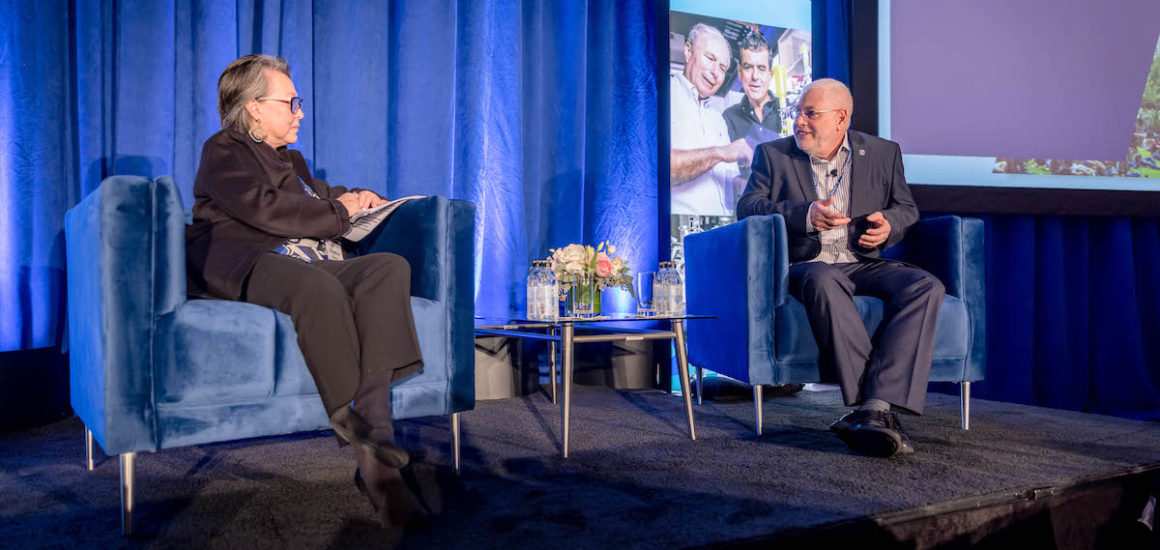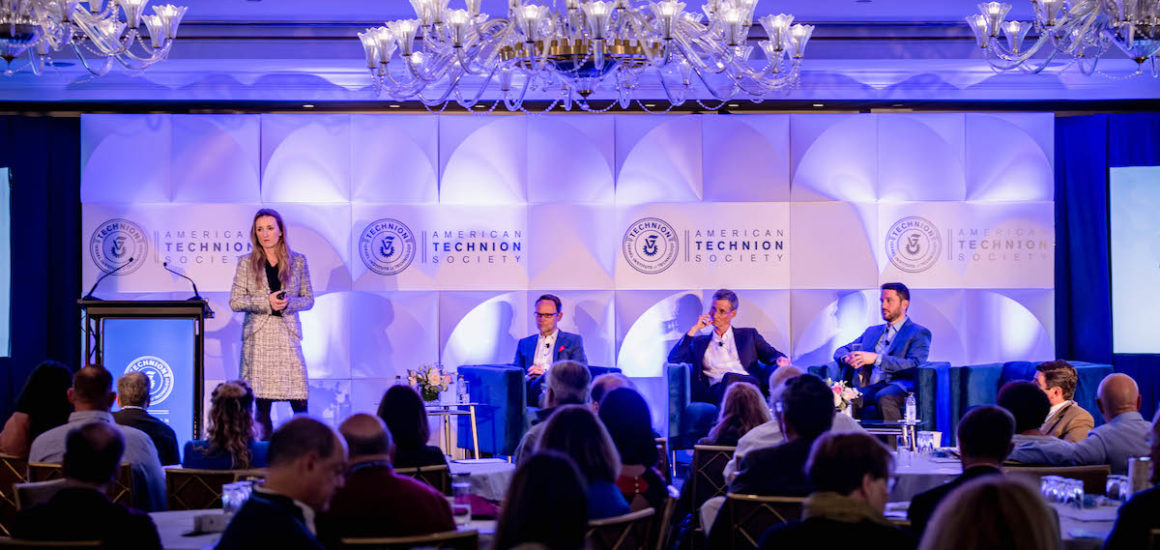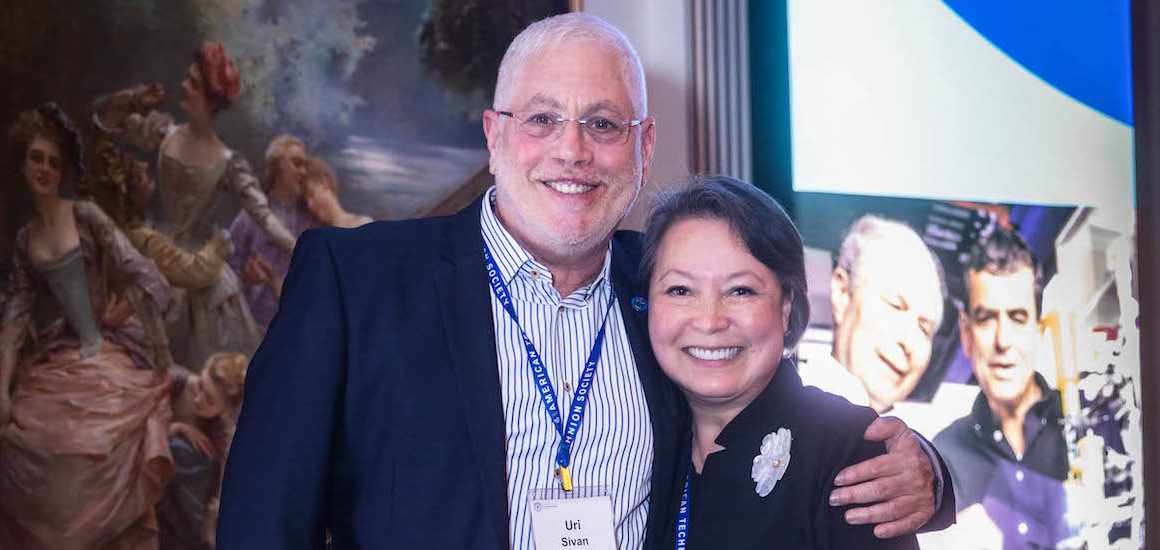Blue skies and the warmth of early spring welcomed American Technion Society VIP supporters in New York City for the first in-person Presidential Forum since the pandemic. More than 130 guests and 28 speakers attended the two-day event, March 18-19, 2022, reconnecting with old friends, meeting new ones, and hearing from experts within and outside of the Technion.
“It’s incredible to see you all here,” said Technion President Uri Sivan. “We haven’t met in person for over two years. And Zoom is only a partial substitute. Seeing everybody here in person, the human interaction, makes a whole world of difference.”
An exclusive insiders’ event, the Presidential Forum provides an opportunity for the Technion’s top stakeholders to gain firsthand expert insight beyond what is reported in the media about major initiatives at the Technion and important academic trends at other leading universities.
This year’s Forum, titled “Meeting the Grand Challenges of the 21st Century,” certainly met and exceeded expectations. Here is an overview of the highlights.
Day 1 was spent on Roosevelt Island at the Joan & Irwin Jacobs Technion-Cornell Institute at Cornell Tech, where participants toured the campus and attended insightful panel discussions. Jacobs Technion-Cornell Institute faculty doubled as tour leaders to point out the various buildings that make up the now-completed first phase of the campus development, including a passive sustainably designed dormitory and the delectable ice cream made at Cornell University’s famed Dairy Bar. Another five buildings will be constructed going forward to accommodate 2,000 students.
The day’s sessions included:
Ten Years of the Jacobs Technion-Cornell Institute: Impact of an Unprecedented Collaboration — a panel of Institute faculty members discussed its beginnings and evolution, moderated by Director Ronald Brachman.
The Future of Universities and Research: How Do Universities Remain Competitive in a Changing Environment? — a discussion with leaders of elite U.S. universities about mutual challenges facing universities, led by President Sivan.
The sun set with a festive cocktail party and Shabbat dinner at the Lotte New York Palace, featuring keynote speaker Walter Isaacson, author of The Code Breaker: Jennifer Doudna, Gene Editing, and the Future of the Human Race. He spoke about his book as well as the evolution of technology and its impact on our world.
Day 2 of the Presidential Forum began with an “Insider Briefing” in which Technion President Uri Sivan presented his vision for the university as it approaches its 100th anniversary. Taking the helm just months before COVID-19 hit the U.S., President Sivan said the pandemic, like all crises, “forced us to think very deeply about where we are headed.” As such, Technion leaders crafted Technion 2031, a strategic plan for the coming decade.
The plan, he told attendees, identifies three key challenges: Human Health, Sustainability, and Digital Industry. The Technion has already launched the Technion Human Health Institute (THHI), a multidisciplinary collaboration of 170 researchers from 16 faculties who will jointly develop programs and recruit new faculty. But THHI needs its own building to serve as a common meeting point “to have coffee together, argue together, spark ideas together,” President Sivan said. He also pointed to other aspects of Technion 2031, which include the establishment of a small humanities department, “because all engineers will have to make major decisions that will have ethical consequences and an impact on society.” Diversity and inclusion are also priorities in the new strategic plan.
Following the Insider Briefing, the day’s sessions included:
Human Health: Advancing the Standard of Care in the 21st Century — Technion medical and computer science faculty shared their cutting-edge research, moderated by inventor and founder of FIRST (For Inspiration and Recognition of Science and Technology), Dean Kamen.
Sustainability & Catalysis: Changing Lives for the Better — environmental and cleantech scientists explained the role of catalysis in our daily lives and the importance of the Technion’s new Center for Sustainable Processes and Catalysis, led by Professor Peter Schreiner of Justus Liebig University in Giessen, Germany.
Marking what Presidential Forum co-chair Angelica Berrie called “the perfect ending to what has been a remarkable day,” the Forum came to a close with an elegant Celebratory Dinner and Program in the top floor event space Aspire at One World Trade Center. Rising adjacent to where the Twin Towers once stood, the new steel and glass building, one of the tallest skyscrapers in the Western Hemisphere, symbolizes hope and defiance for New Yorkers in the wake of the 9/11 attacks. Aspire’s floor-to-ceiling windows provided participants with 360-degree views of Manhattan, the East River, the Brooklyn Bridge, and the Statue of Liberty — and an almost palpable sense of exhilaration.
President Sivan and ATS National President Steve Berger seized the occasion to present a special pin, made of gold and ancient glass, to the newest Technion Guardians — individuals who support the Technion and ATS at the highest level. “One of the most meaningful parts of my job as President of the ATS is when I get to participate in recognizing some of our most generous supporters,” said Mr. Berger. President Sivan added: “Guardians embody a profound spirit of care for Israel and the Technion and join the membership of our most distinguished giving circle.”
Guardian pins were bestowed upon Angelica Berrie, Desiree and Max Blankfeld, Terry and Shifra Gardner, Ruth Kurzbauer, Al Munzer and Joel Wind, Janet Shatz Snyder, Cathy and Jim Deutchman, and Andi and Larry Wolfe.
In keeping with the theme of grand challenges, the evening’s guest speaker was Dr. Albert Bourla, chief executive officer of Pfizer, Inc., whose COVID-19 vaccine tackled perhaps the greatest health challenge of recent times and made the in-person gathering possible. Sitting down with Associate Professor Shai-Shen Orr, founder of CytoReason, which partners with Pfizer for drug development, Dr. Bourla talked about the obstacles Pfizer faced in bringing the vaccine to market, as well as its successful rollout in Israel. While Israelis are sometimes chaotic, he said, “when it comes to crisis, there’s no nation that can execute better.”
Pfizer was not the only drug company to have the scientists, money, and technology needed to develop the vaccine. “What set us apart was the mindset of thinking big,” or asking the seemingly impossible, he said. For example, if it typically takes 10 years to develop a vaccine, “we didn’t ask our people to make it in eight years. We asked them to do it in eight months.” Dr. Bourla, who will be conferred an honorary doctorate from the Technion in June 2022, received a standing ovation.
All told, the two-day event was a huge success! Friends and supporters of all ages and from all across the country were thrilled to be among the Technion family once again, in person, and to get caught up on new happenings from the Haifa campus. The guest speakers hailed from a perfect combination of Technion experts to non-university superstars, and the events included a nice balance of learning and cocktails. And the words “magical moments” were heard time and again.


